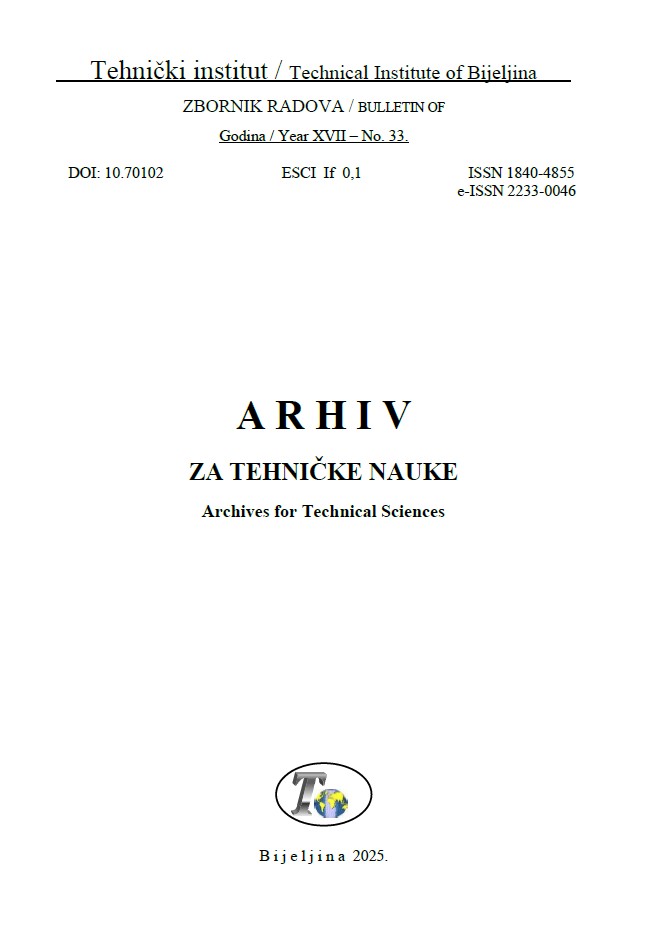EVALUATING THE EFFECTIVENESS OF PREDICTION TECHNIQUES FOR CYBERATTACKS: A COMPREHESIVE TAXONOMY
The rising threat of cyberattacks in today's society emphasizes the urgent need for improved methods to both detect and prevent these incidents. This paper focuses on assessing the effectiveness of various techniques for predicting cyberattacks. The DTCF taxonomy was proposed for predicting these attacks, considering datasets, techniques, challenge...
By Azhar F. Al-zubidi, Alaa Kadhim Farhan, Abeer Alsadoon
SERVERLESS DATABASES: FUTURE TRENDS IN CLOUD DATABASE MANAGEMENT AND COST OPTIMIZATION
The cloud data management infrastructure is being transformed by serverless databases because of their operational simplicity, usage-based pricing, and elastic scalability. However, their performance in real-world workloads analysis is still unexplored. This paper presents an in-depth analysis of serverless database systems using simulation-based b...
By Harsha Vardhan Reddy Kavuluri
ROBOTIC PROCESS AUTOMATION IN SAP ERP: ENHANCING FINANCIAL TRANSACTION RECONCILIATION AND COMPLIANCE MONITORING
Within SAP ERP systems, large-scale enterprise environments grapple with financial transaction reconciliation along with compliance monitoring as some of the most intricate and error-prone processes. This research examines automating reconciliation processes augmented with real-time compliance monitoring through the integration of RPA into SAP S/4 ...
By Nagendra Harish Jamithireddy
AUTOMATED ESSAY EVALUATION SYSTEMS FOR SCIENTIFIC WRITING IN ENGINEERING EDUCATION
Despite the importance of scientific writing for engineering students, the technical discourse poses a significant challenge for learners. The promise of Automated Essay Evaluation (AEE) Systems to provide timely and reliable feedback has enabled greater development of writing instruction through expedited and automated support. This paper examines...
By Izzatbek Rejapov, Abdurahim Mannonov, Gavharxon Saydaliyeva, Gaybullaev Otabek, Sherzod Djabbarov, Dilnoza Ziyoyeva, Ulugbek Eshkuvvatov, Nargiza Mannapova
RETRIEVAL- AUGMENTED GENERATION TECHNIQUES IN ORACLE APEX IMPROVING CONTEXTUAL RESPONSES IN AI ASSISTANTS
The research focuses on incorporating Retrieval-Augmented Generation (RAG) methods into Oracle APEX to enhance the context, semantics, and accurateness of responses given by AI assistants in enterprise applications. We developed a fully integrated, low-latency RAG system tailored for Oracle’s low-code framework by embedding dense semantic sea...
By Srikanth Reddy Keshireddy
PYTHON-DRIVEN ADAPTIVE TESTING ALGORITHMS FOR PERSONALIZED ASSESSMENT IN E-LEARNING PLATFORMS
The recent advancement in e-learning systems has highlighted the need for more tailored and effective methods of assessment. The e-learning system has become increasingly common in society; however, it comes with its own unique challenges. This study explores the development of an adaptive testing framework implemented in Python, utilizing algorith...
By Ankita Sappa
MEMS-ENABLED VIBRATION MONITORING AND DIAGNOSTIC EVALUATION FOR LONG-TERM HEALTH ASSESSMENT OF SWARNAMUKHI AND BHAKTA KANNAPPA SETHU BRIDGES IN SRIKALAHASTI
This study presents a year-long vibration-based structural health monitoring (SHM) of the Swarnamukhi River Bridge and Bhakta Kannappa Sethu Bridge using a MEMS accelerometer integrated with a low-cost microcontroller system. The monthly dynamic response parameters of acceleration, displacement, frequency, and velocity were monitored from June 2024...
By K. Asha Latha, K. Narasimhulu
NONLINEAR STATIC ANALYSIS OF RCC SPACE FRAME ON SLOPING GROUNDS INCORPORATING SSI
This paper presents a comprehensive investigation into the seismic performance of a G+5 reinforced concrete spaceframe subjected to pushover analysis. The analysis incorporates the critical influence of soil-structure interaction on varying slope inclinations. A nonlinear static pushover method is utilized to examine the lateral loading streng...
By Tushar Golait, Neeraj Tiwari, Manjeet Singh Hora
POSSIBILITIES FOR MEASURING SMALL DISCHARGES USING A SIMPLE WEIR CONSTRUCTION
Measuring small flow rates often requires expensive equipment and is associated with inherent limitations. In practice, various measuring structures, such as weirs, are commonly constructed at specific locations to facilitate flow measurements. This paper proposes an innovative and low-cost measurement structure made from sewer pipes, incorporating...
By Petar Praštalo, Anica Milanović
CYBERCRIME VULNERABILITY AMONG OLDER ADULTS IN MALAYSIA IN THE CONTEXT OF DIGITAL DECEPTION
This study explores the growing phenomenon of cybercrime targeting older adult individuals in Malaysia, a demographic increasingly susceptible due to factors such as limited digital literacy, social isolation, and perceived financial stability. Drawing upon Routine Activity Theory and Social Engineering Theory, the research investigates the situati...
By Kian-Lam Tan, Jayaeswari Sangaralingam, Lau Pei Mey, Premalatha Karupiah, Chen-Kim Lim






